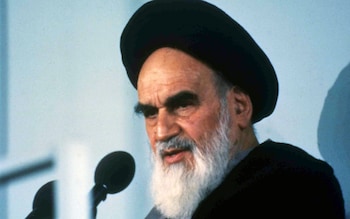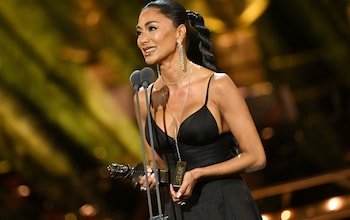“We simply do not know the long-term impacts.” How long we have waited for the words and wisdom of Dr Hilary Cass. Now that the world-renowned paediatrician and chairman of the independent review of gender identity services for children and young people has submitted her report to NHS England, we have 400 pages of them, and every sentence should feel like vindication, every recommendation providing us with the light-headed relief that only comes when someone finally states the obvious. When the child at the end of the Emperor’s New Clothes finally says: “But the emperor has nothing at all on!” When common sense finally cuts through the madness.
“For most young people, a medical pathway” is not the best way to deal with gender-related issues, summarises Dr Cass. There is “no good evidence on the long-term outcomes of interventions to manage gender-related distress,” and young people questioning their gender identity should be given “a holistic assessment” including screening for neurodevelopmental conditions such as autism. Moving forward, we should above all “exercise extreme caution”.
As in the Emperor’s New Clothes, other voices are now freely echoing Dr Cass’s views. At the dinner parties where the “wrong” opinion could once silence a room, people are suddenly in agreement that “we took our eye off the ball”; on the panel shows where any opposing argument for the teaching of gender identity in schools was once steeped in caveats, there’s a new stridency.
Then there are the public figures speaking out with renewed vigour. Teachers must no longer allow themselves to be “bullied” by transgender campaigners, Damian Hinds told this paper on Sunday, and should be duty-bound to inform parents if their child wants to change gender. The schools minister has doubled down and said the report “draws a line in the sand”. Mark Russell, the chief executive of The Children’s Society, called this “a watershed moment” and Rishi Sunak has insisted that “the wellbeing and health of children must come first”.
The tragic truth is that for years it has come last – after the egoism of gender ideologists, agenda-pushing clinicians and virtue-signalling politicians. So while many of us welcome this moment of clarity, there is no sense of vindication and no relief. How can there be, when we are only now beginning to assess how much damage has been done?
Consumed by toxic debates, activists never stopped to consider the impact of their lofty ideologies on innocent children. Why? Because these gender warriors were too hopped up on the idea of their own bravery. They’d cast themselves as modern day heroes. Now, history will judge the “brave” as being the most cowardly of all.
This should never have been a trans debate, but a completely separate conversation about the safeguarding of children, and there is nothing brave about complying with the accepted narrative – especially when that narrative involves highly vulnerable children being given irreversible drug treatments.
Every “brave” teacher who failed to tell a parent that their child wanted to change their name, pronoun and gender was a coward. Every “responsible” adult who actively engaged in helping that child do so without consulting their parents demonstrated shocking cowardice, as did every “brave” BBC trailblazer who thought it right to put out video resources to middle-school children claiming there are “over 100 gender identities”, and everyone who ignored evidence that an alleged 97.5 per cent of children seeking sex changes at the scandal-ridden Tavistock clinic had autism, depression or other problems that might have explained their unhappiness.
Cowardice is a revolting trait at the best of times, but where a child’s health is concerned it is unforgivable. As Mr Hinds said on Sunday, nobody working with children should be “vilified or called a transphobe” for making “difficult decisions” which are in their best interests. I’d go so far as to say that making “difficult decisions” is every responsible adult’s job.
We may not be able to undo the damage done to thousands of children “let down by the NHS”, in the words of Dr Cass, but we can learn from our failings and show bravery in this and any other area where we have fallen asleep at the wheel.
Two of the most obvious current threats to children made headlines on Sunday. The first involves social media and a proposed ban for the under-16s. Among a raft of proposals set to be unveiled by the Government within weeks, the plan is at odds with the guidance of most tech platforms, who for purely cynical reasons (get them addicted young) largely have a minimum age limit of 13. It’s also an absolute no-brainer. We now know that social media is responsible for a wealth of ills in children, which is why the right thing to do is to ban it.
The second is Sunak’s “controversial” smoking ban, which would make it impossible for anyone born after 2009 from buying cigarettes and vapes, and could only be deemed controversial by people who don’t realise that smoking kills and are unaware that vapes – currently being sold alongside toys to children – can permanently impact brain function.
If you’re still on the fence with either of these issues, ask yourself whether, as with using children as guinea pigs in gender experimentation, you really want to wait for that “line in the sand” to be drawn – for that “watershed moment” – or whether you want to support the right decision, the brave decision, now.
Disclaimer: The copyright of this article belongs to the original author. Reposting this article is solely for the purpose of information dissemination and does not constitute any investment advice. If there is any infringement, please contact us immediately. We will make corrections or deletions as necessary. Thank you.



